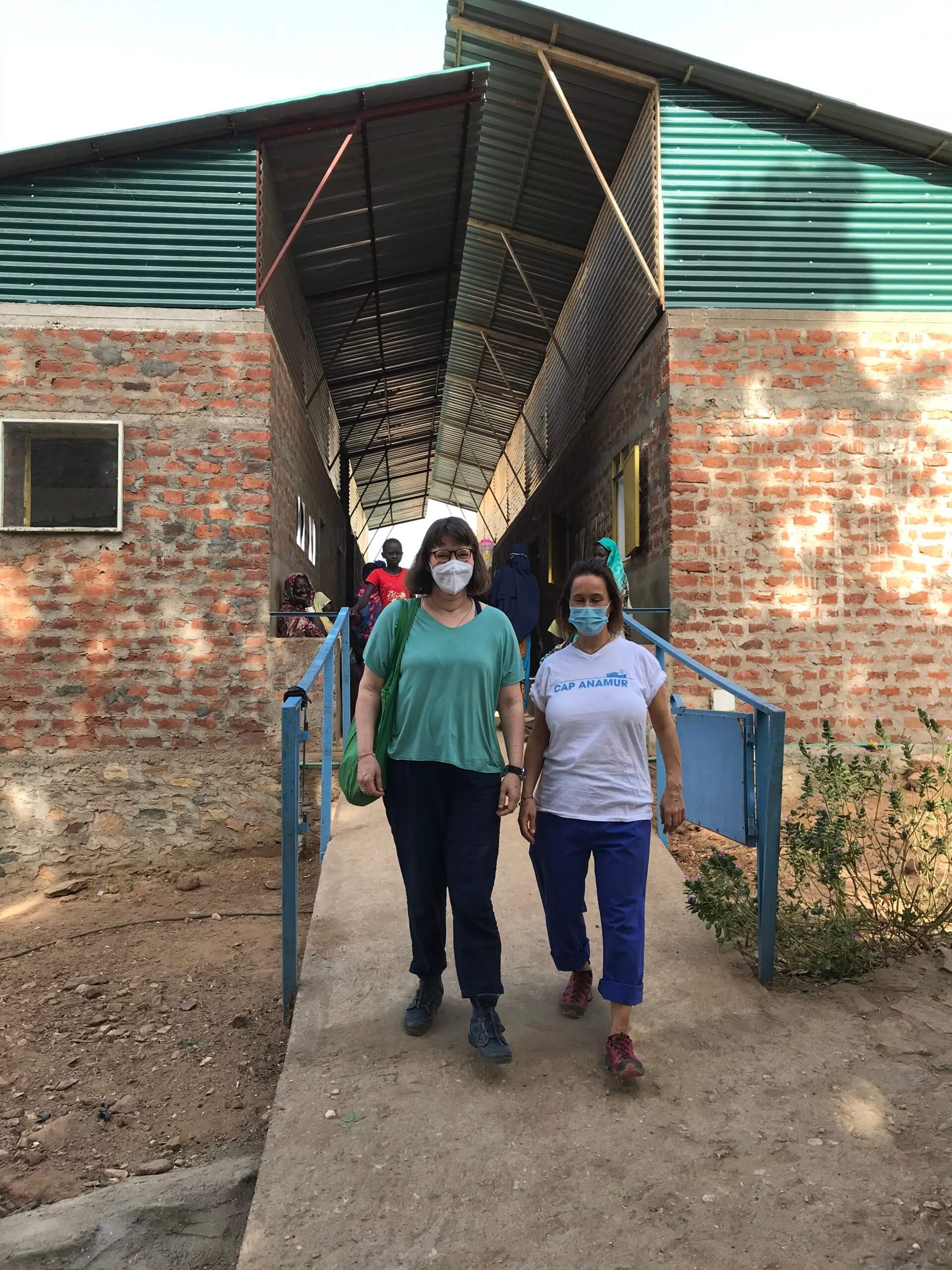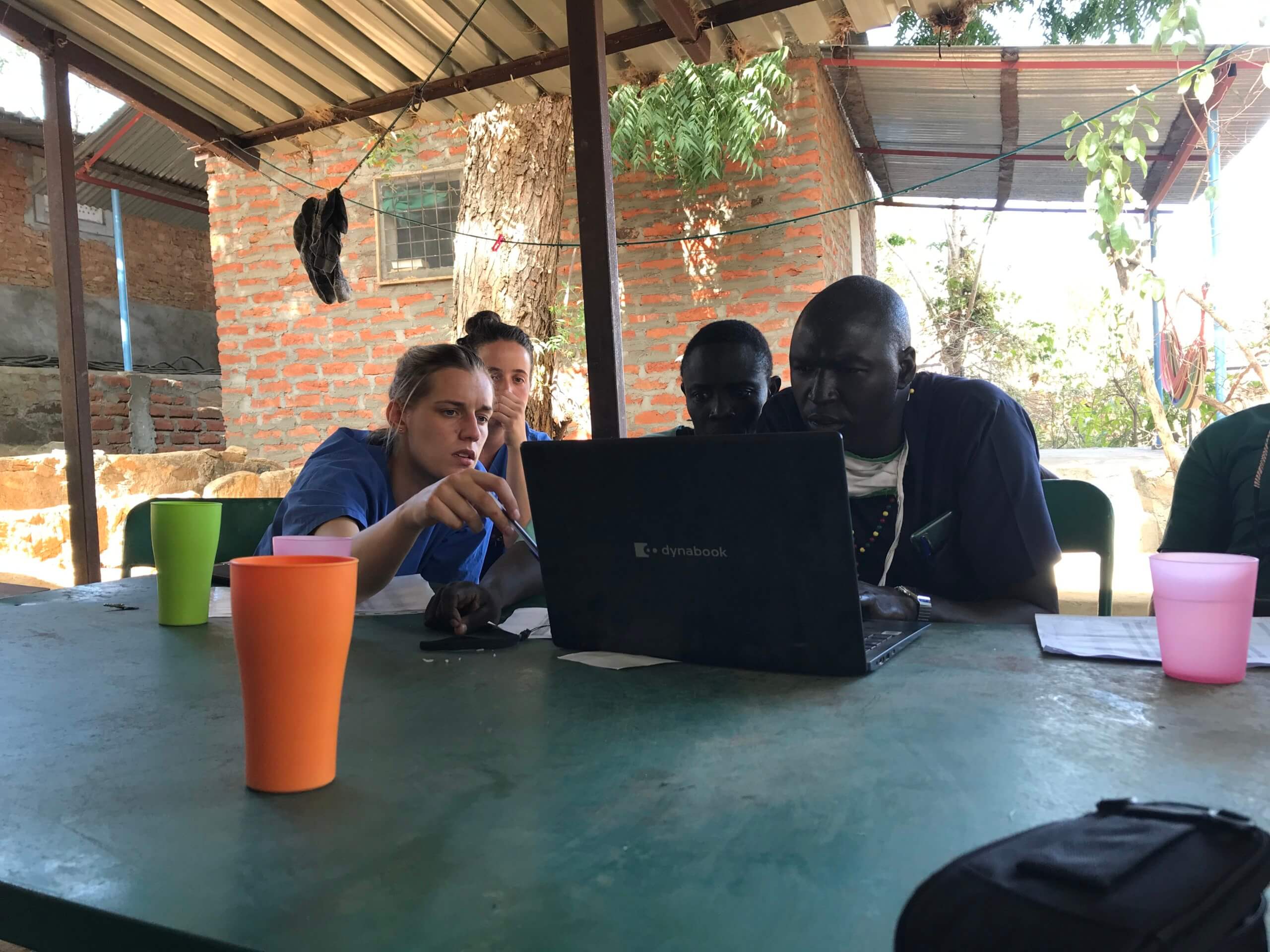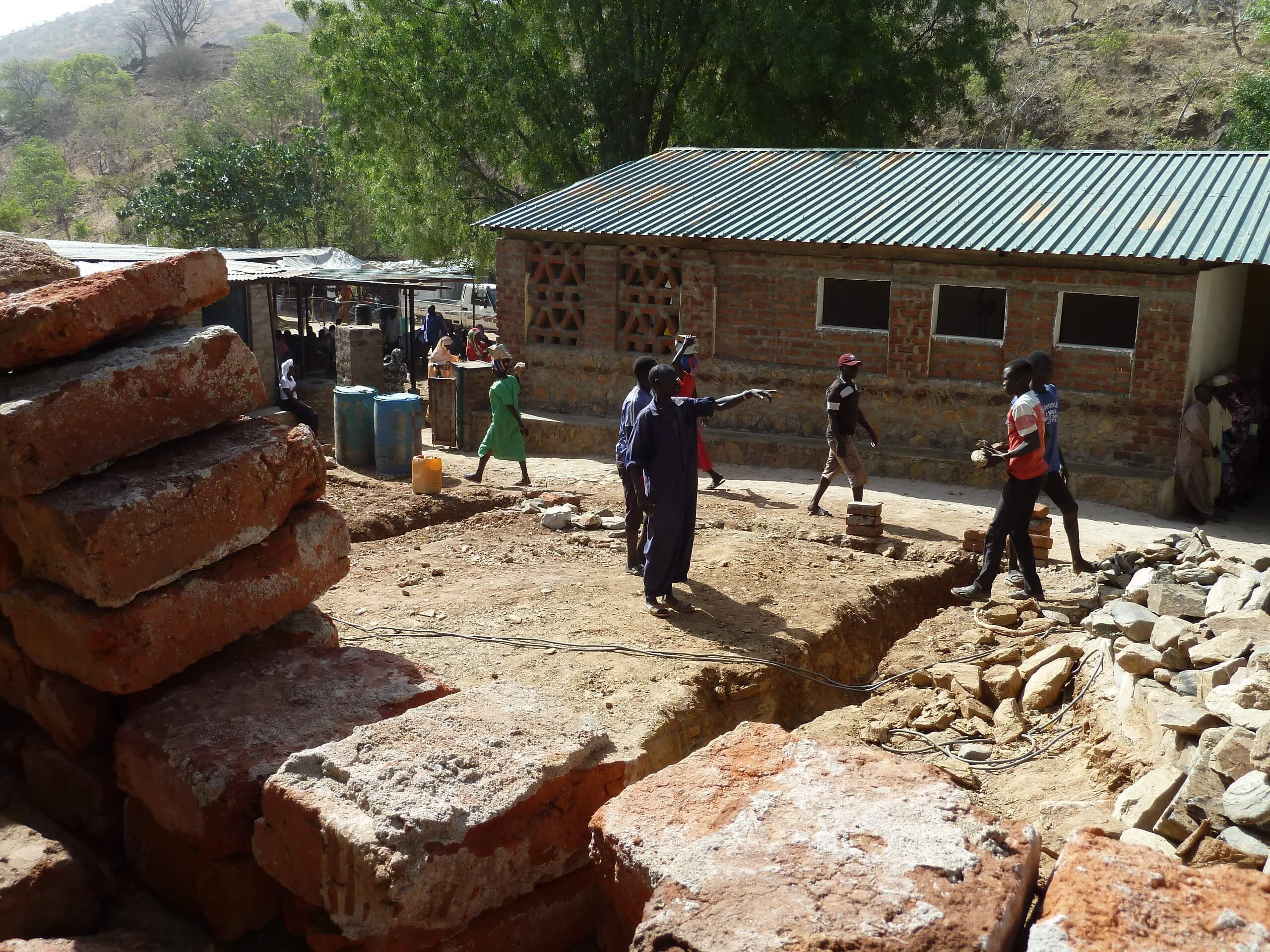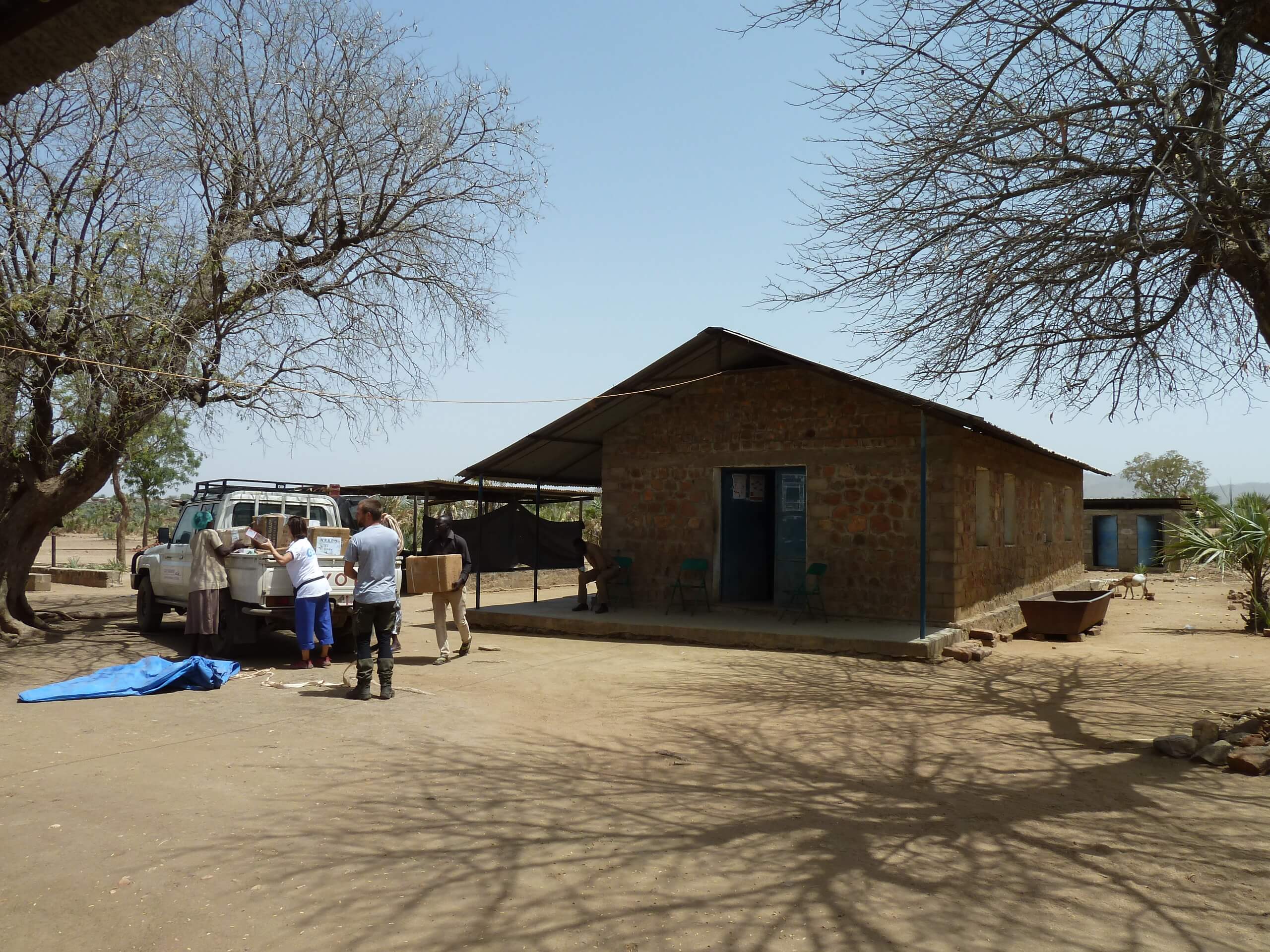Project reports
The Cap Anamur project reports describe the work of our teams on site, provide insights and depict current developments in the aid project.
Cap Anamur project coordinator visits Sudan
Most recently, Yasmin Hiller, project coordinator of Cap Anamur was in Sudan for a 10-day project visit to our hospital. While on site, she gained an overview of the most recently completed construction work, day-to-day hospital operations and various process optimization measures.

Cap Anamur employees train the local personnel
Currently, four project staff members are working in our hospital in Lwere. Andreas coordinates the upcoming construction work and is responsible for distributing needed materials to the four clinics within a radius of 150 kilometers. Anke performs rounds and treatments as a pediatrician, Sophie attends many births as a midwife and shares best practices with local midwives, and Mirja, a nurse practitioner, supports the work of the medical nursing staff at the hospital.
Anke and Sophie held staff interviews with the local employees to learn their suggestions for improvement or what changes they would like to see. These discussions have led to a more intensive exchange between Cap Anamur project staff and local personnel. Hospital staff feel much more valued and motivated as a result. In this context, Anke and Sophie also showed employees how to create schedules – this new introduction also strengthens independence and a willingness to take responsibility. Because we have both Muslim and Christian employees at the hospital, and if there are corresponding holidays, they should be given the option that they don’t have to work on those days.

Our project coordinator Andreas is in close exchange with our external clinics. This means he knows the need for new equipment or supplies, which he delivers to the clinics. Since we are constantly optimizing the construction of our medical facilities, there is and has been a lot for him to do.
We are constantly developing the hospital with construction measures
Very recently, the foundation for a new emergency room was laid in Lwere. The new building is scheduled for completion by October. In addition, two patient rooms will be newly constructed. The old emergency room building is being converted into an infirmary. Andreas has optimized the power supply throughout the hospital area so that faults can be located and corrected more quickly. The patient washrooms were also rebuilt.

Yasmin Hiller visited our large hospital in Lwere as well as the two outposts in Debbie and Kurungu to get an idea of the work processes and current construction measures.
She describes her impressions of the project as follows: “The project in the Nuba Mountains is very special. Not only the unique location and landscape, but also the hospitality and the friendly nature of the Nuba people made me very enthusiastic.
The cooperation between our delegated project staff and the local staff is particularly friendly and close. The willingness of the hospital staff to learn new skills from the specialists and to engage in joint exchange was confirmed to me time and again in conversations. The interest to improve in the work context is very high and the motivation is also very high.”
The hospital is supplied with medicines, consumables and building materials every half year by a large delivery. Currently, the stocks are still completely replenished and the construction work can be realized well. In May the rainy season starts in the Nuba Mountains, until then the most important works will be finished or only small tasks will be done. Cap Anamur received $5,000 worth of bricks from the local community for the construction of the new ER. This also underlines the good cooperation between the local authorities and our organization.


